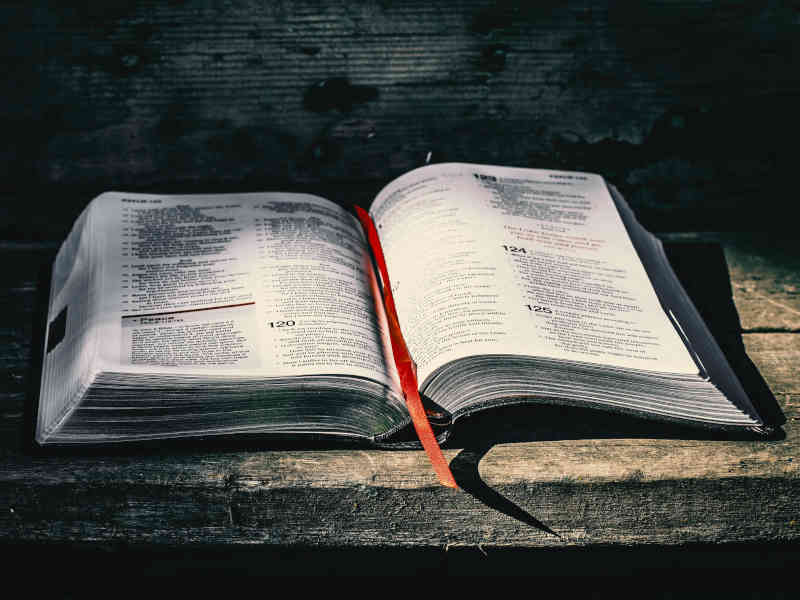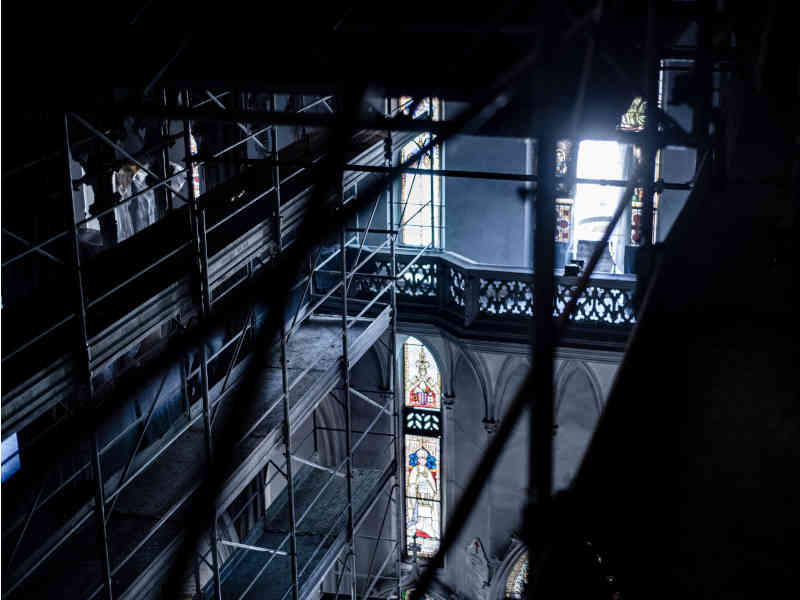The letter to the Hebrews concludes with exhortations centred around the image of sacrifice. In the earlier chapters, the author has explained how the cross of Jesus fulfils the laws about sacrifice on the Day of Atonement. Now the letter develops this theme further. The actions of believers who follow in the footsteps of Jesus are a sacrifice of praise and thanksgiving. In pursuing a lifestyle of holiness and faithfulness, believers manifest the community of promise which Jesus created when he died 'outside the city gate'.
Life with God is like a race. Starting it is no good unless we can finish it well. The heroes of faith from the past (ch. 11) teach us that running the race of faith requires resilience. We need to persevere in the face of difficulties. But God has given us enough resources to cope when those difficulties come. We need to look back to Jesus, the author of our faith, and forward to the new Jerusalem, the city God has prepared for us.
At the end of chapter 10 the writer of Hebrews calls his audience to persevere in their commitment to Christ in spite of opposition and suffering. Now he paints a picture of the kind of faith that makes such commitment possible. This is not a philosophical treatise on the nature of faith but a pastoral exhortation to follow in the footsteps of their ancestors by imitating their example.
Each year on the Day of Atonement the high priest offered sacrifices to purify the Jerusalem temple and to remove the sins of the people. But the Levitical laws, as Hebrews 10.1 says, were only 'a shadow of the good things to come.' The true meaning of that ritual is revealed in the cross of Christ.
The blood shed on that cross cleanses the sins of the world and fulfils the Day of Atonement.
The exploration of Melchizedek and Jesus' high priestly ministry naturally progresses to a discussion of the new covenant on which the ministry is based. Why is this a better covenant? Because it writes the law of God not on tablets of stone but on the human heart. Thus, it makes possible for human beings to know God in a true and meaningful way.
In chapters 1-6 the theme of the greatness of Jesus' high priestly ministry comes up several times. Now the epistle begins to develop this subject in more detail. The author uses the enigmatic OT figure of Melchizedek to explore his topic. Jesus as a high priest in the order of Melchizedek is far superior to the Levitical priesthood established in the Law of Moses.
The writer pauses his exposition in order to exhort his readers to persevere in their spiritual journey. He is concerned with their lack of spiritual growth and continuing immaturity. The author encourages his audience to make every effort to deepen their understanding of God's word and develop into mature disciples of Christ.
Jesus� role as a high priest is one of the key themes in the letter to the Hebrews. The high priest was an imperfect mediator between the people and God. Jesus, who experienced suffering and temptation yet led a sinless life, can sympathise with our weaknesses, and represent us perfectly to a holy God. Understanding this gives us hope and confidence.
The writer of Hebrews now applies the experience of the wilderness generation to the circumstances of his audience. Like them, the early Christians were in danger of hardening their hearts and being deceived by sin. The only remedy is to open oneself to the power of the word of God which, like a living sword, pierces the human soul to test and purify it.
After painting a picture of the greatness of the Son of God, the author turns to Jesus�s relation to humanity. Through his incarnation, death, and resurrection Jesus fulfils human destiny and restores the place of human beings in the order of creation, liberating them from the slavery of death and the devil.
The epistle to the Hebrews begins by painting a grand vision of Christ. He is the Son of God, the Creator of the world and the Saviour of humanity. He is immeasurably greater than the angels. Therefore, we need to pay careful attention to the word which God has spoken to us through the Son.










